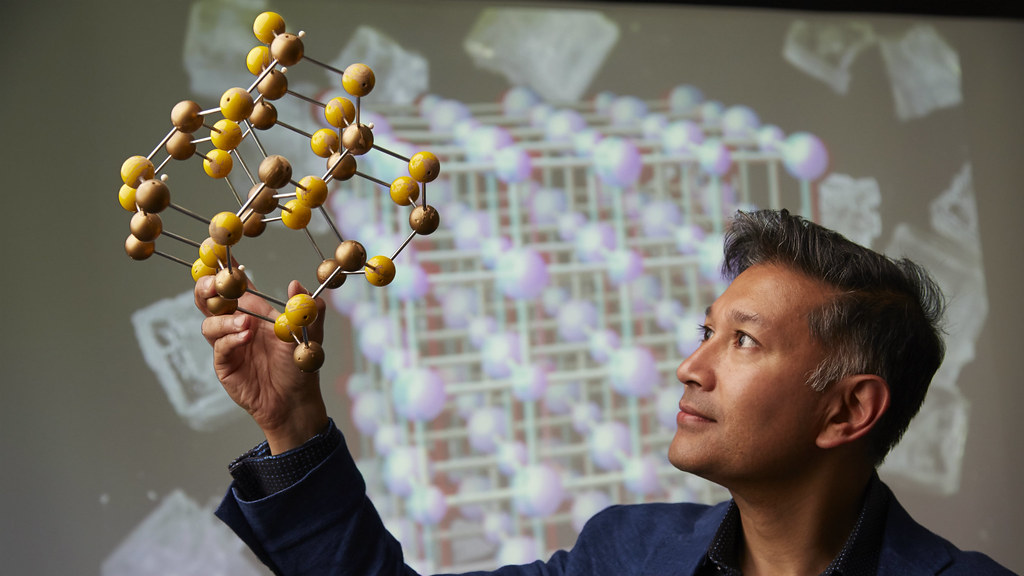Professor Islam is becoming increasingly well-known to wider audiences, having presented the 80th anniversary Royal Institution Christmas Lectures 2016 for BBC TV, on the theme of energy.He grew up in Crouch End, north London and obtained his Chemistry degree and PhD from University College London.
New, clean energy technologies require fundamental advances in the science of energy materials. Professor Islam uses powerful computer modelling techniques to help understand and develop new materials for solar cells and for lithium batteries in electric cars.
He said: “I am delighted and honoured to receive the 2017 Peter Day Award from the Royal Society of Chemistry. I would like to acknowledge the fantastic contributions from my research group – past and present – working on computational studies of new materials for rechargeable batteries and solar cells with strong experimental collaboration.”
The Peter Day Award is awarded for outstanding contributions to, and advancement of, the field of materials chemistry. The award alternates between those specialising in the broad areas of soft matter and continuous lattice solids. Professor Islam receives £2,000, a medal and a certificate.
Dr Robert Parker, chief executive of the Royal Society of Chemistry, said: “It is an honour to celebrate the innovation and expertise of our community through our prizes and awards.
“We know that chemistry can be a powerful force for good, and quality research and communication of that research are more important than ever before.
“Our charitable mission is to advance excellence in the chemical sciences, and we are proud to celebrate our inspiring and influential winners, who share that mission.”
Award winners are evaluated for the originality and impact of their research, as well as the quality of the results, which can be shown in publications, patents, or even software. The awards also recognise the importance of teamwork across the chemical sciences, and the abilities of individuals to develop successful collaborations.
An illustrious list of 50 previous winners of the Royal Society of Chemistry’s awards have gone on to win Nobel Prizes for their pioneering work, including all of the 2016 chemistry winners, Jean-Pierre Sauvage, Fraser Stoddart and Ben Feringa.

